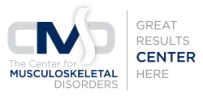Percutaneous Discectomy
It is undeniable that lower back pain plagues the U.S. population. It has been estimated that over 31 million adults in the United States experience low back pain at any given point in time. In fact, 80 percent of the population will experience low back pain as some point in their life.
One of the most common causes of back pain is disc herniation. An intervertebral disc is made up of an inner and outer layer. If the disc’s outer layer begins to deteriorate, it can weaken. This allows the inner layer to extend outward, or herniate. That action may cause irritation or impingement on the spinal nerves, which often results in chronic, debilitating pain.
There are several surgical solutions for herniated discs. However, advancements in surgical techniques have resulted in a minimally invasive technique called percutaneous (meaning ‘through the skin’) discectomy. In this procedure, the surgery is performed through small incisions with the use of endoscopes. It allows for the removal of the irritating disc material, restoring mobility and reducing pain. Published success rates for patient relief are greater than 80 percent.
The procedure usually takes under an hour and can be done on an outpatient basis. (It does not require a hospital stay.) In fact, patients can typically go home a few hours after treatment. Although recovery time varies, a majority of patients can return to daily function in about one week.
Benefits of Percutaneous Discectomy
Percutaneous discectomy allows patients to get pain relief with a minimally invasive procedure. The following is a list of benefits for having this procedure:
- Decreased pain
- Increased mobility
- Less invasive than surgery
- Less scarring than other treatment options
- Preservation of disc strength and future treatment options, if necessary
Beneficiaries of Percutaneous Discectomy
Candidates for percutaneous discectomy include those who:
- Have not had success with conservative treatments methods (heat, ice, physical therapy, pain medications)
- Have large contained (non-ruptured) disc herniations and for whom open surgery is not considered an appropriate treatment
- Have small, contained disc herniations
Back Pain Centers in NYC & NJ
At The Center for Musculoskeletal Disorders, we offer percutaneous discectomy as well as other spine surgery techniques. We are experienced in this surgery and offer this minimally invasive approach after exhausting all other conservative treatments.
